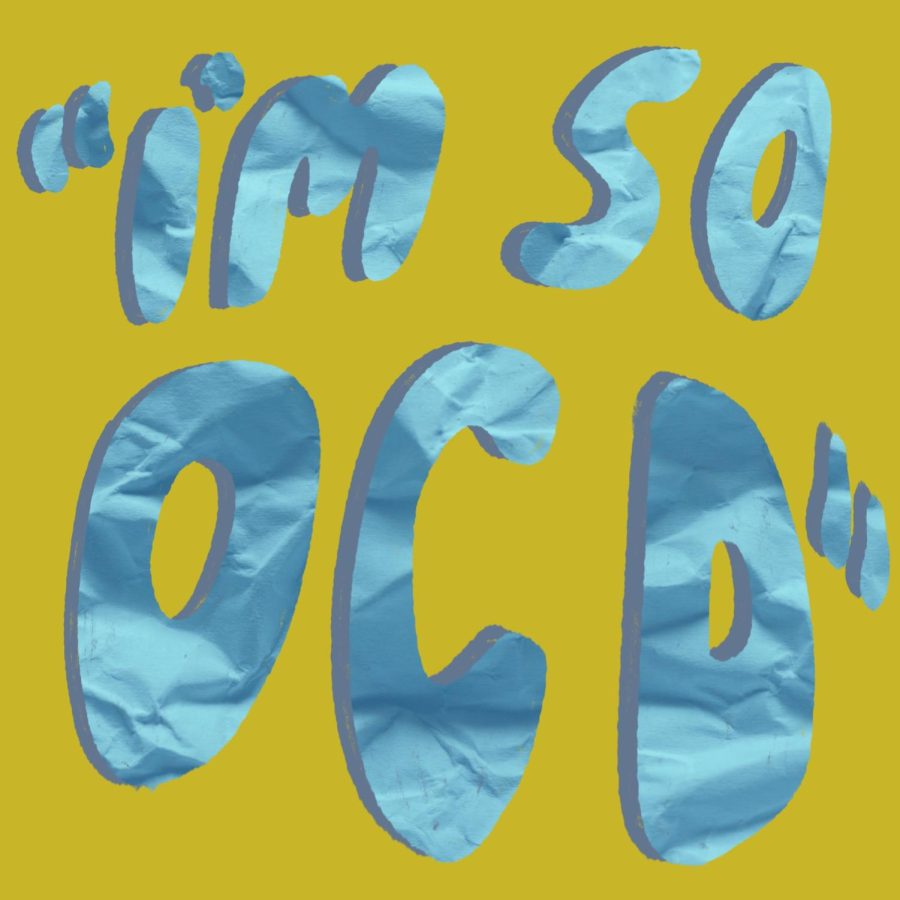OCD is not just an adjective
October 4, 2022
Obsessive Compulsive Disorder (OCD) is misused and overused as a descriptor for above-average cleanliness and organization, despite it being a very real and occasionally debilitating mental disorder. Using the term out of context is a form of misinformation that minimizes the actual experiences of those who have to live with OCD every day. While not every person diagnosed with OCD may have symptoms obvious to everyone, they have to learn to live with their symptoms and survive in a world where a considerable amount of people think of their disorder as an adjective to describe niche organization habits.
According to the National Institute of Mental Health, OCD is a mental disorder that causes those affected to experience constant and recurring compulsions and obsessions. Obsessions are mental and include symptoms such as an aversion to germs, aggressive or unwanted thoughts, needing to keep things symmetrical or in certain positions, etc. — all of which can cause intense anxiety for the affected. Meanwhile, compulsions are behavioral and often a response to obsessive thoughts. These behaviors can include, but are not limited to: excessive cleaning, repeatedly checking to make sure doors are locked and switches are turned off and repeating words or phrases. These symptoms alone may not seem very harmful, but the stress and anxiety they cause, as well as the thoughts and behaviors themselves, can interfere with a person’s life to the point of affecting their personal relationships, work-life and even their physical health. These obsessions and compulsions reach the point of being disordered once a person starts spending a good chunk of each day managing their symptoms, or when they start experiencing intense anxiety that is only ever relieved by giving into their compulsions.
OCD is a term used by many to describe actions they see as overly-organized, and is often used as an adjective for people they might otherwise describe as clean freaks. There is a chance that you have heard the term used in this way before and not given it a second thought. This overuse inadvertently downplays the symptoms of OCD and makes people that have been diagnosed with the disorder less likely to have their symptoms taken seriously by the neurotypical population. If you have only ever heard people use OCD as a way to refer to their cleaning and organization habits, it is much more likely that when someone tells you that they have been diagnosed with OCD, you will only think of that person as being slightly more put together and tidy than average, not as someone with a chronic disorder. This type of misuse can also be found in popular articles published by large online companies. Articles such as “33 Meticulous Cleaning Tricks for the OCD Person Inside You” from BuzzFeed and quizzes titled something along the lines of “How OCD Are You?” are made by random people with no confirmed qualifications and then published to popular websites that are highly accessible to the public.
On a slightly more positive note, awareness of OCD has increased in recent years, largely thanks to its normalization on social media. Podcasts, Twitter and other social media platforms talking about this issue have greatly contributed to the decrease in misinformation and ignorance surrounding it, but there are still those that do not understand the true meaning of OCD, and we have many years of overuse to blame. People still misuse OCD as an adjective to this day, but it has definitely declined and will hopefully continue to do so in the future.
The overuse and misuse of neurodiverse terms are harmful to anyone with a mental disorder, as it makes people who do not fully understand the phrases they are using believe that the symptoms of these disorders are not debilitating and more like a personality quirk than something that affects a person’s everyday life. Using the term as a descriptor for normal behavior completely disregards the experiences of people diagnosed with OCD. It is time to stop using recognized mental disorders as adjectives to describe non-disordered behavior and further educate the public on the reality of neurodivergence.








